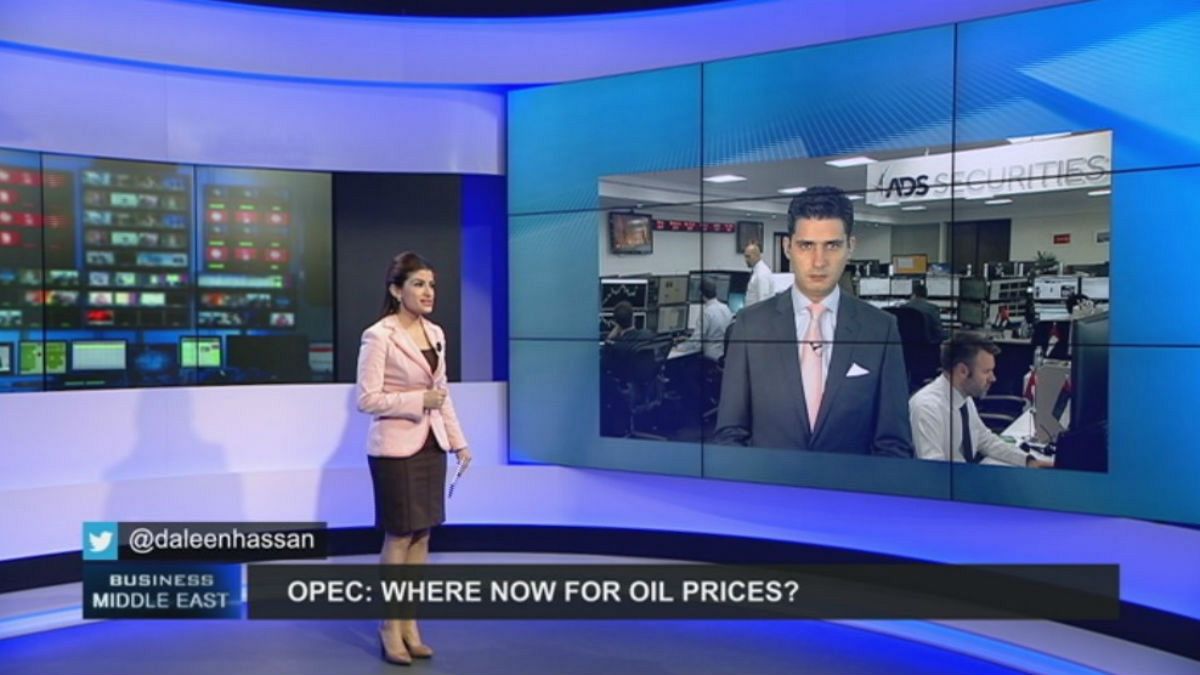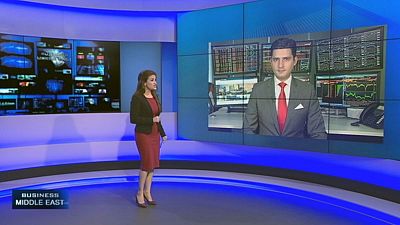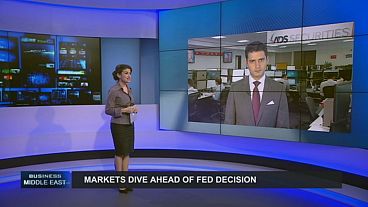On Business Middle East this week we analyse the repercussions of the latest OPEC meeting decision. According to analysts it’s clear from the meeting
On Business Middle East this week we analyse the repercussions of the latest OPEC meeting decision.
According to analysts it’s clear from the meeting that OPEC wants to put more pressure on shale oil producers such as the United States.
Instead of cutting production OPEC opted to keep supply and prices low, thereby hoping to keep their market share.
But with oil supplies at a record high there is speculation that the price war could intensify.
Opec: acrimonious meeting
OPEC will keep pumping out more than 31.5 million barrels a day, which will put more downward pressure on the price.
Euronews asked the Saudi Oil Minister, Ali al Naimi, if there are any plans to coordinate with Russia to stabilise the market.
“We’ve shown our willingness to coordinate with anybody who wants to stabilise the market,” said al Naimi.
However the Saudis and their Gulf allies have been sticking to their strategy of defending market share – hoping that lower prices may ultimately drive higher cost producers, such as US shale firms, out of the market.
“The cost of producing in some non-OPEC countries is much higher than what we are now, so mathematically they won’t continue,” said Kuwaiti Oil Minister, Anas al-Saleh.
It is expected that OPEC will hold another meeting before June 2016 if oil prices do continue to fall.
Where now for oil prices?
So just how likely is that? Business Middle East spoke to Nour Eldeen Al-Hammoury , the Chief Market strategist at ADS securities in Abu Dhabi.
Daleen Hassan, euronews: “A lot of controversy last Friday in the OPEC meeting, so again a high level of oil production, how do you interpret the outcome of the meeting?”
Nour AL Hammoury: “Retaining the production ceiling is not a major event for the markets, OPEC, or even for oil prices.
This is because OPEC members were already exceeding the previous celling of 30 million barrels a day that from the start o the start of the year.”
Moreover, they produced more than 32.4 million barrels a day in June. So OPEC members are already pumping out more than the allowed ceiling. Therefore, raising the ceiling is just a technical decision and doesn’t mean that production has really increased. If they raised the the ceiling above 32 million barrels a day, then that would be a game changer.”
Daleen Hassan, euronews: “What are the levels to watch now in the oil price, and what is your forecast for the oil market and companies in the upcoming period?”
Nour Al Hammoury : “Beginning with the West Texas Crude price; traders should keep an eye on 40 dollars, which remains a solid support and we haven’t seen any weekly close below that support. However, if we break that support then we could see more downside.
“As for Brent Crude, the level of 42.2 dollars is also a significant support level, which was seen earlier this year, a close below that level might lead to further downward pressure.
“However, there might be some signs of a stabilisation just like the one we saw in August of this year.
“A declining USD dollar due to a potential rate hike by the Fed in December may grant some price stability.
“In the next few months, as the oversupply remains the same, with a slower global economy, and no intentions by OPEC and non-Opec members to cut the production, we might see another round of acquisitions and mergers between big and smaller oil firms, including the shale oil companies, as lower oil prices effect earnings.”
OPEC nations pile pressure on Saudi Arabia to cut oil output https://t.co/YjVLRkzBEipic.twitter.com/zF2Nbfbbsm
— Bloomberg Business (@business) December 4, 2015
Gulf countries diversify
One important player who thinks lower oil prices are not necessarily a bad thing for his country is Suhail Al Mazroui, the United Arab Emirates Energy Minister. For him it presents an opportunity to diversify:
“Cutting production and targeting a certain price is no longer a successful policy. Today certain prices could hurt a lot of us, but this is an opportunity also to reduce the cost and to build diversified economies and remove our reliance on oil.
“We must take advantage of the crisis, for it presents an opportunity.”
“Today the Emirates has adopted a different policy. In 2021 we will have about 30 percent of power generation from green sources, which don’t emit carbon dioxide, or from either nuclear power, or solar energy.”
You can see the whole programme by clicking on the video above



